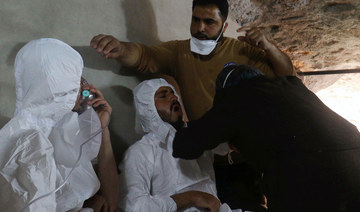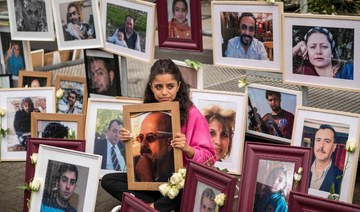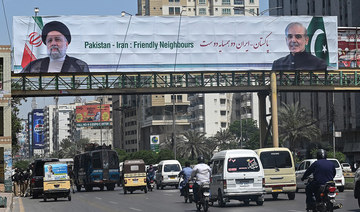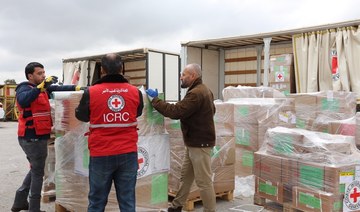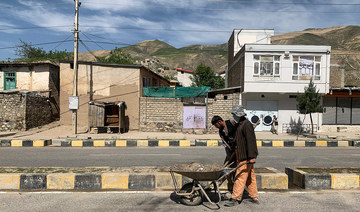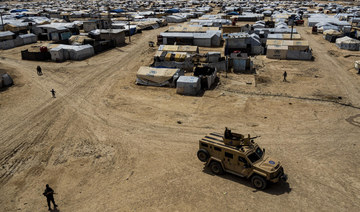WASHINGTON, D.C.: For survivors of torture and sexual abuse in Bashar Assad’s jails, the conviction of former Syrian intelligence officer Anwar Raslan last month for crimes against humanity and the ongoing trial of Dr. Alaa Mousa are major steps in the fight for justice.
Beyond that, many survivors as well as human-rights advocates say, the two cases, heard in German courts, have established an important legal precedent for the international community, which must now do more to bring leading regime officials to justice for atrocities against the Syrian people.
Stephen Rapp, an American lawyer, former US ambassador-at-large for war crimes issues in the Office of Global Criminal Justice, and chair of the Board of Commissioners for the Commission for International Justice and Accountability, is building a case against the Syrian ruler and his inner circle to hold them to account for torture and mass murder.
“The conviction of Anwar Raslan and the trial of Dr. Alaa Mousa in Germany give me hope that higher level Syrian regime officials will eventually be brought to justice,” Rapp, who successfully prosecuted suspects following the 1994 Rwandan genocide, told Arab News.

“This is a first step on the long road to justice,” Yasmine Mishaan, a founding member of the Caesar Families Association, told Arab News. (AFP)
“Very strong evidence is available. The challenge is making the arrests. What is needed is more effective tracking of the movements of such officials and coordinated action by states to achieve the arrest and transfer of the suspects when they are outside Syria.”
Raslan, 58, a former member of Syria’s General Intelligence Directorate who claimed asylum in Germany in 2014, became the most senior former regime official to be convicted of crimes perpetrated in Syria when a court in Koblenz handed down a life sentence last month.
German prosecutors accused Raslan of overseeing the murder of 58 people and the torture of 4,000 others while he was head of the investigations section at the Al-Khatib detention facility in Damascus, also known as “Branch 251.”
Witness testimonies, which included well-documented accounts of torture and sexual abuse in Branch 251, were corroborated by tens of thousands of photographs smuggled out of Syria by a military defector code named “Caesar.” The photographs graphically depict scenes of abuse, torture and murder.
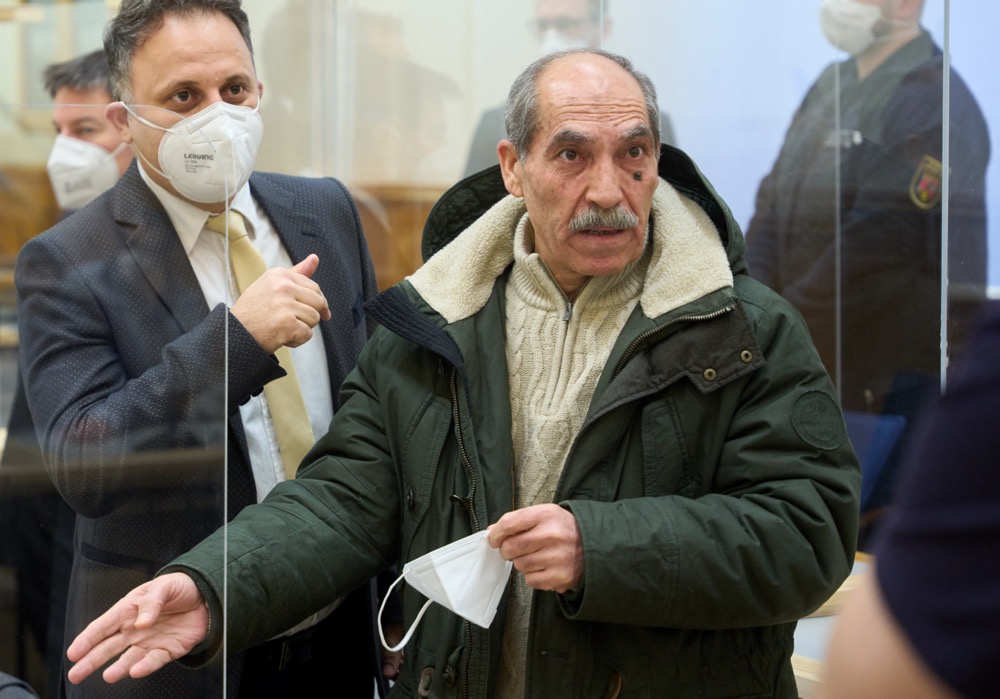
Anwar Raslan appearing in court in Koblenz, western Germany. (AFP)
On Jan. 13, Raslan was found guilty of overseeing 27 of the murders and of crimes against humanity. He was sentenced to life in prison.
“The verdict is an important step, but it does not bring full justice for the Syrian people,” Ameenah Sawwan, a Syrian activist based in Germany, told Arab News.
“This is the beginning of a wider struggle for more comprehensive justice and accountability for the victims. It is important to remember that the crimes against humanity that came to light in the trial of Anwar Raslan are still taking place in Syria every day.”
Sawwan added: “Officials in the Syrian regime should know that they will one day also be held accountable. I remember in my childhood the stories that my parents would tell us about what this regime was capable of. And then, after 2011, I saw with my own eyes how the regime would detain family members and bomb our homes.”
Raslan is not the only regime official on trial in Germany. Syrian doctor Alaa Mousa, 36, is facing charges of torture and murder allegedly committed while working in the regime’s military hospitals. Among a string of charges, he is accused of setting fire to a teenage boy’s genitals and operating on detainees without anaesthesia.
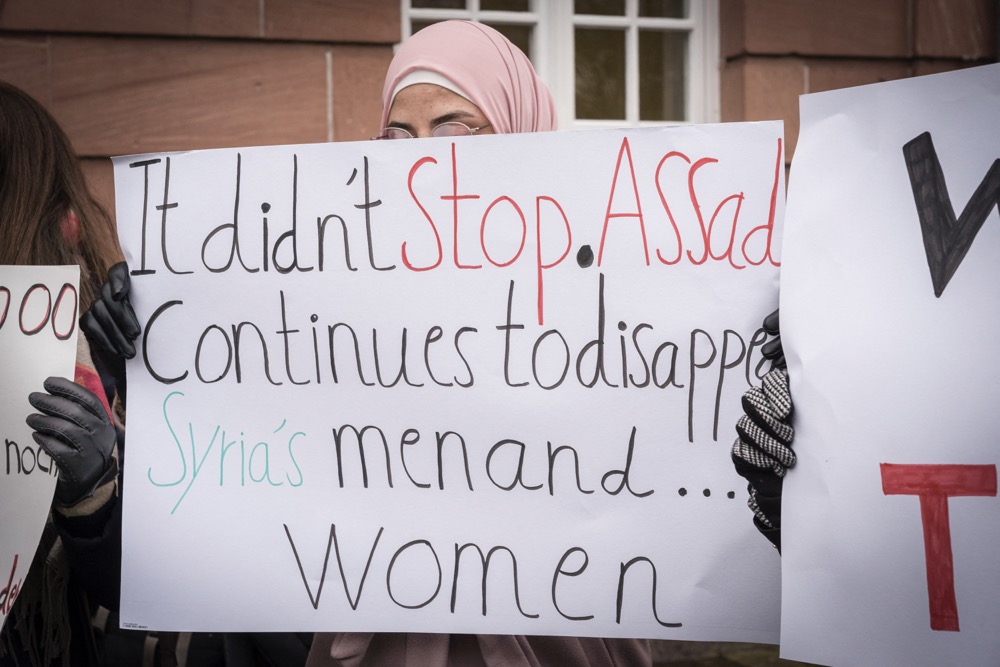
Abu Layla: “They have full authority to kill, arrest and abuse anyone rejecting the Assad regime. And they have no deterrent for committing these violations.” (AFP)
Mousa faces 18 counts of torturing detainees in Damascus and the western city of Homs in 2011-12. He also faces one count of murder for allegedly administering a lethal injection to a prisoner who resisted being beaten, according to federal prosecutors.
Mousa arrived in Germany on a visa for skilled workers in mid-2015 and continued to practice medicine until his arrest in June 2020 after Syrian witnesses came forward. He denies all the charges.
Germany’s “universal jurisdiction laws” make it unique among European states, giving its prosecutors a broad mandate to seek justice for crimes of exceptional gravity that took place elsewhere in the world, even if no crime had been committed in Germany itself.
Syria is not a member of the International Criminal Court and, in 2014, Russia and China blocked efforts at the UN Security Council to give the court a mandate over serious crimes in Syria. Germany’s courts offer Syrian survivors a rare platform to seek accountability.
 “This was an important conviction for us because it is the first trial of its kind for a security officer while the system he represented is still in power. This is a first step on the long road to justice,” Yasmine Mishaan, a founding member of the Caesar Families Association, told Arab News.
“This was an important conviction for us because it is the first trial of its kind for a security officer while the system he represented is still in power. This is a first step on the long road to justice,” Yasmine Mishaan, a founding member of the Caesar Families Association, told Arab News.
Four of Mishaan’s brothers disappeared into the regime’s jails. Mishaan said that during Raslan’s trial, she recognized her brother Oqba’s corpse among the thousands of photographs smuggled out by Caesar.
For Mishaan and many grieving families, the conviction sets an important precedent and an example for other governments to follow.
“Our ability to access a special court for Syria or an international criminal court is blocked by the UN Security Council vetoes of Russia and China. We hope that other countries will follow Germany’s suit and hold other rights violators like Raslan accountable. For me, justice will mean that my brother’s dreams at the start of the Syrian revolution will one day come true.”

Abu Layla believes the trials have shown the Assad regime that the days of absolute impunity may soon be over. (AFP)
Omar Abu Layla, a Syrian refugee and analyst now living in Germany, also believes January’s prosecution represents an important first step. “The prosecution of a former criminal involved in violations against Syrians means a lot to me,” Abu Layla told Arab News.
“Today all Syrian families are victims of these criminals. I lost more than 88 of my cousins, who were martyred and more than 155 members of my tribe were detained. It is just one step and should be followed by more and bigger steps than the prosecution of one person. There must be larger and broader mechanisms to prosecute all war criminals in Syria, not just those in Europe.”
Even if they are able to evade arrest, members of Assad’s inner circle have reason to fear the precedent set by the Koblenz trial, in large part because it threatens to disrupt the regime’s efforts to normalize relations with the international community.
“It is a direct message to the countries that are trying to normalize relations with the Syrian regime that the international position will not change as the regime is criminal, and so all those normalizing relations with it are supporting its criminality,” said Abu Layla.
Although Raslan and Mousa are relatively low-ranking figures, Abu Layla believes the trials have shown the Assad regime that the days of absolute impunity may soon be over — which could act as a deterrent to further atrocities.

Tens of thousands of people have been detained or disappeared in Syria since 2011. (AFP)
“These criminals must not enjoy a free life after being involved in cases of torture, murder and criminality against the Syrian people over the past years, so justice is the only way they see the results of their practices against Syrians,” he said.
“These trials send direct messages to it and its supporters that none of them can get away with these crimes, and they all will be arrested, including the head of the regime. No doubt these trials cause a state of fear inside the Assad regime.”
Human rights observers believe the centralized nature of the regime has left a detailed paper trail that can be used in a court of law to prosecute higher-ranking Syrian security officials — right up to the office of the president.
“The intelligence service is the most criminal branch in Syria at all levels; in prisons and on the ground during the demonstrations,” said Abu Layla. “They have full authority to kill, arrest and abuse anyone rejecting the Assad regime. And they have no deterrent for committing these violations.”
Tens of thousands of people have been detained or disappeared in Syria since 2011, the vast majority by government forces using an extensive network of detention facilities throughout the country. Observers say the regime continues to hold and forcibly disappear thousands of people.
Rapp and the Commission for International Justice and Accountability are confident that many more high-level prosecutions will be possible. Given time, they believe charges will be brought against the highest echelons of the Syrian regime.




